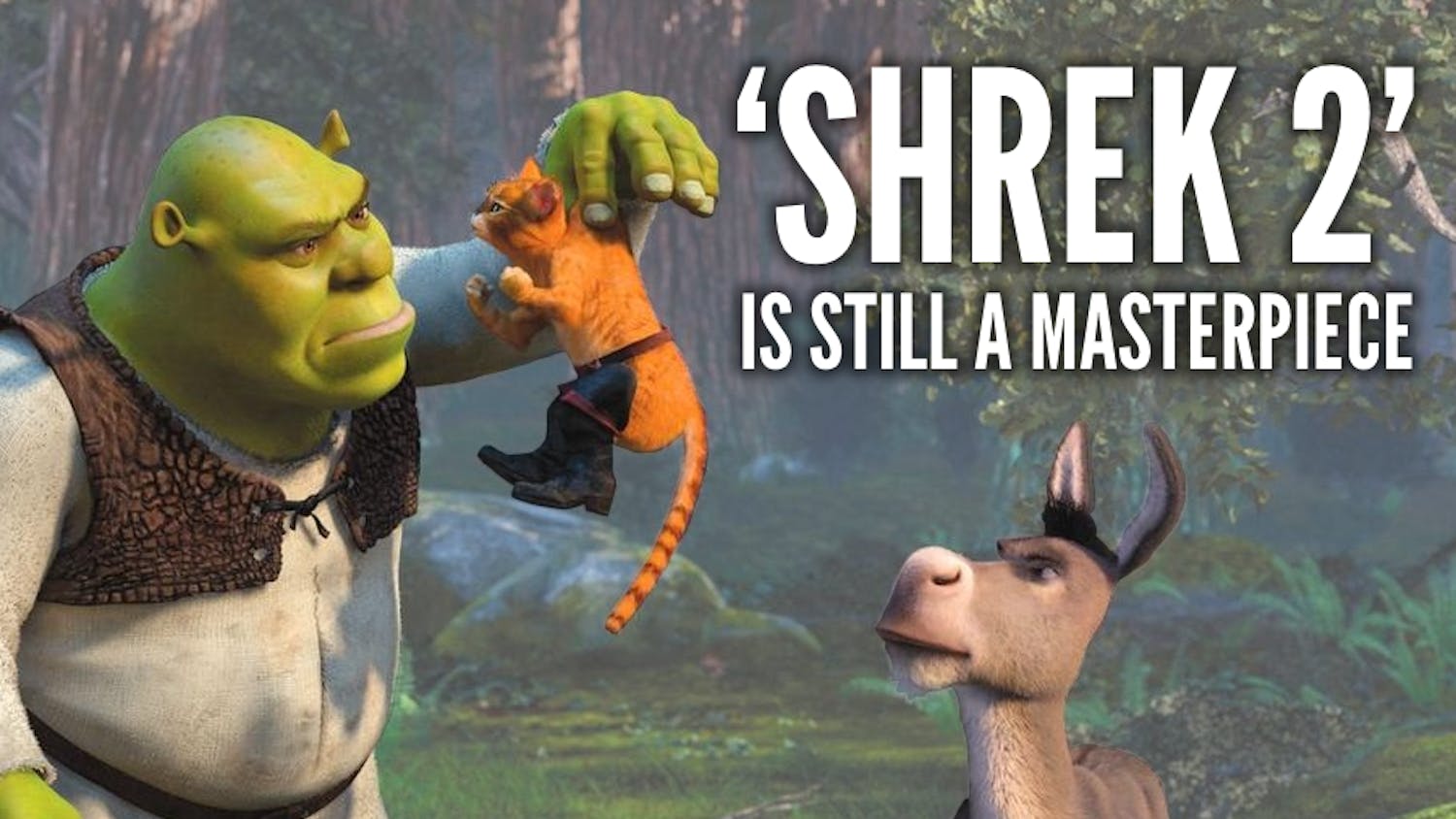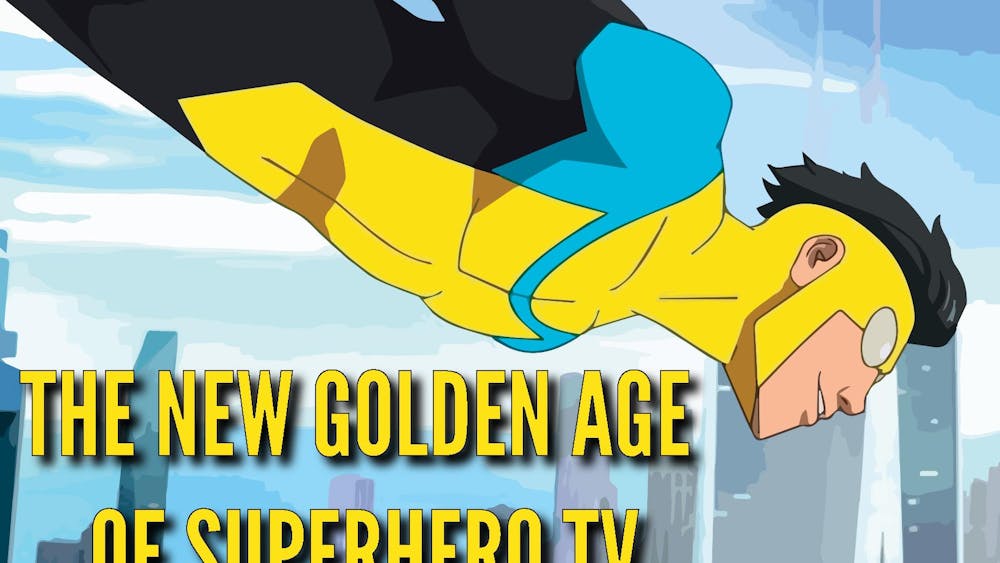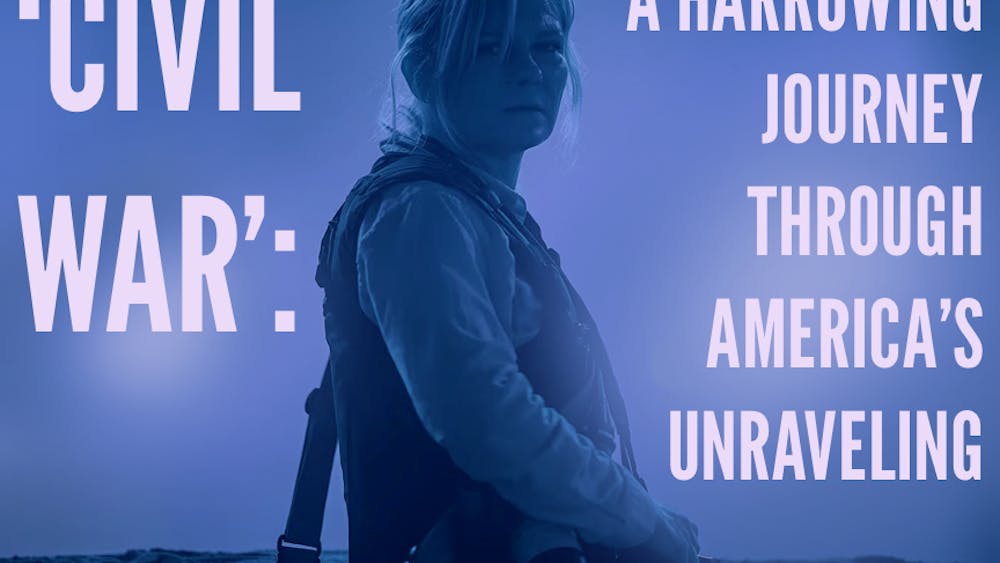
With the 10-episode first season of “Ginny and Georgia,” a Netflix Original Series created by Sarah Lampert, viewers might want to take it one episode at a time. Family dynamic shows move at quick paces, especially when the family is not the mythically normal nuclear family.
Georgia (Brianne Howey) got pregnant and had Ginny (Antonia Gentry) when she was 15 years old. Past trauma has put Georgia permanently on the run, at times taking extreme measures to protect her children and provide them with opportunities that she did not have as a child.
The trailer scene gives a great glimpse into an element of the show that seems to bring together its lighter, superficial side with its serious social one: Ginny’s love for books, passed down by her father.
This story is told in what seems to be an increasingly popular method of the nonlinear narrative. While it may take a bit to get used to, the transitions between the past and present — usually made around connecting scenes, actions, settings or objects — signal when a time shift is about to occur.
The themes that the show addresses provide an expansive view of diversity and inclusion, even if it feels a bit chaotic in its rapid shift from serious topics to more light-hearted ones.
High school politics parallel local politics as Ginny navigates a new social scene, while Georgia does everything to put herself on Mayor Paul Randolph’s (Scott Porter) radar. Even Austin’s middle school becomes a scene of high stakes competition and power.
The age group portrayed in this show represents a certain experience of coming of age in high school within the context of a wealthy suburb of Massachusetts. One of the many tensions hinted at arises in the geographical and political differences in the north versus south of the United States.
More serious scenes that address issues that have been long overdue in the media conversation permeate the narrative as well. The most standout thread in the narrative occurs when Ginny and Georgia’s new Wellsbury, Massachusetts neighbors, the Bakers — Maxine (Sara Waisglass), Marcus (Felix Mallard), Ellen (Jennifer Robertson) and Clint (Chris Kenopic) — sign (communicate in American Sign Language) to include their deaf father in almost every dinner table conversation and/or argument. Other methods of conversation about diversity arise in similar family settings, such as when Ginny and Hunter (Mason Temple) get into a fight about being biracial, as well as Ginny’s later chats with her father, Zion (Nathan Mitchell), about their different shades of Black skin.
Those topics scratch the surface of conversations that have sparked more recently around the human condition and mental health. Self-harm, body image and therapy also receive attention within the lives of the female characters but with the help of Marcus’ deeper personality as well.
Not to mention gender performance and sexuality, which keep the show very exciting in addition to the heterosexual love triangles — or squares, in Georgia’s case — that both Ginny and Georgia face. I will just say here that I am happy with who Ginny ends up with at the end of this season, but not with Georgia’s choice.
The last episode leaves an opening for a second season. It also contains a line that I feel I have to mention as the resident writer about Taylor Swift — a joke that Swift took to Twitter, to question Netflix’s choice in using it, as it roots itself in a very dated reference.
This show certainly has a lot to unpack and that reflects the time in which we are living. While it might be a lot to process, it seems necessary and is presented in a compelling way.
Show: “Ginny and Georgia”
Starring: Brianne Howey and Antonia Gentry
Favorite episodes: “Next Level Rich People Sh*t,” “Boo, B*tch,” and “Feelings Are Hard”
If you like: “Bridgerton,” “Gilmore Girls”
Where to watch:Netflix
Shamrocks: 5 out of 5













